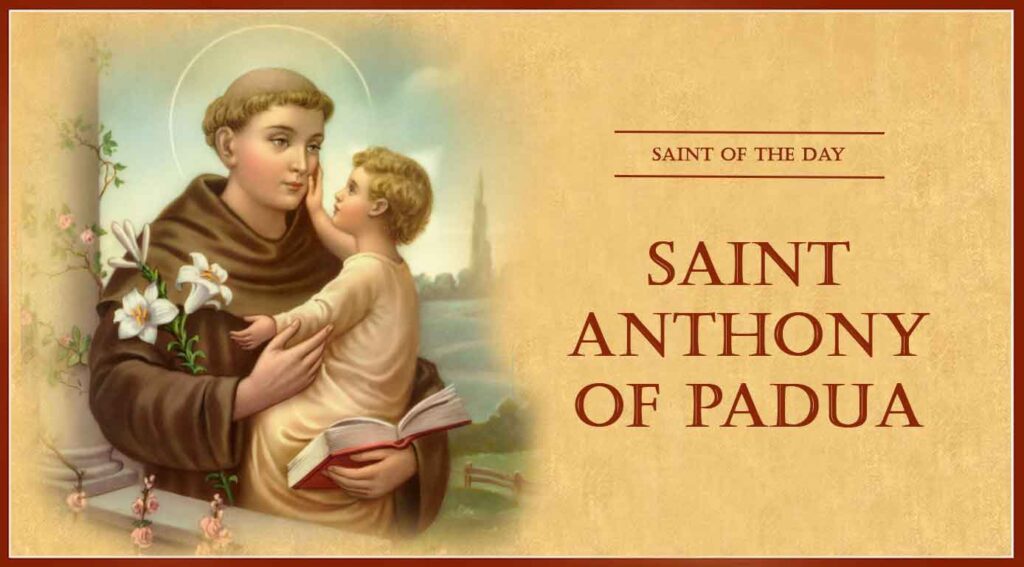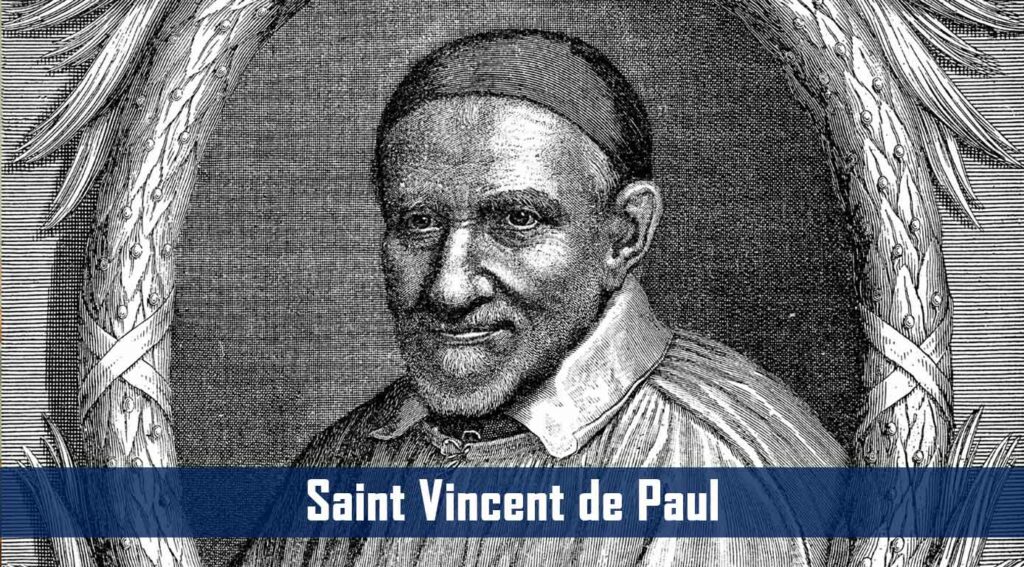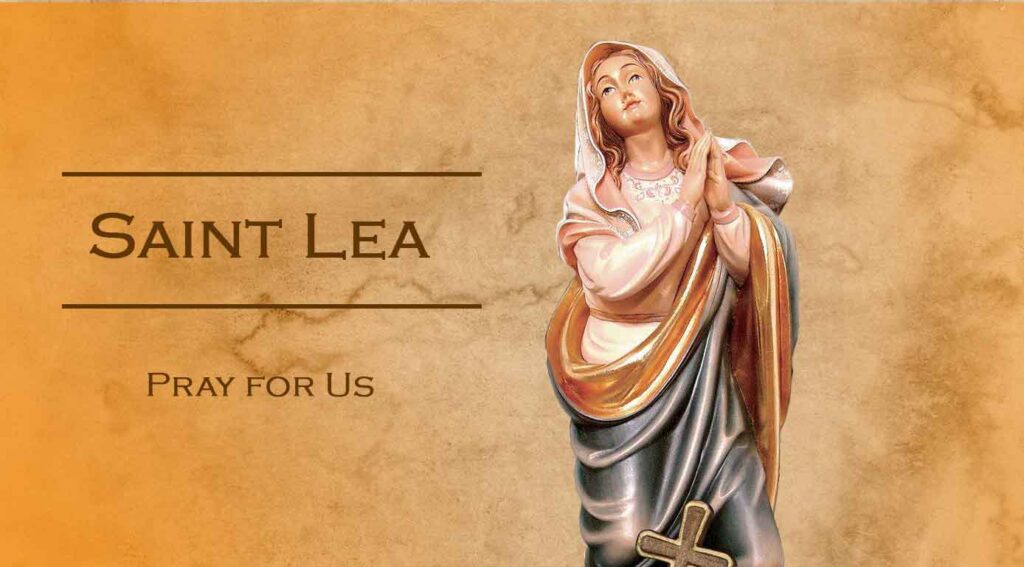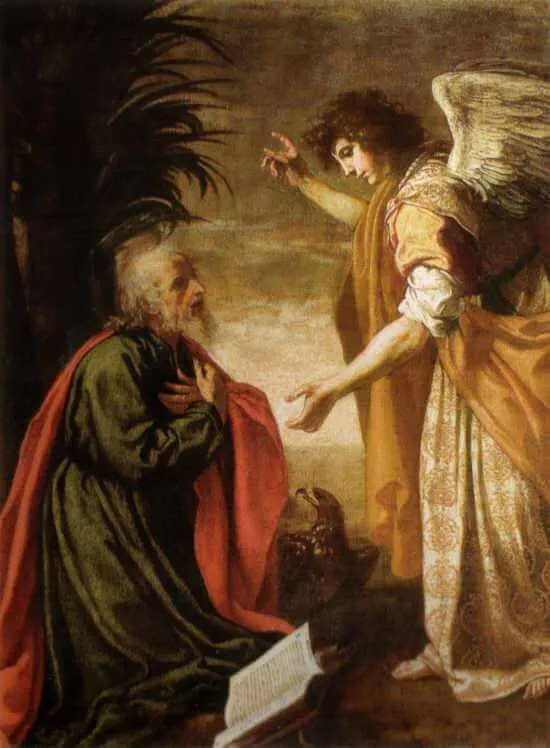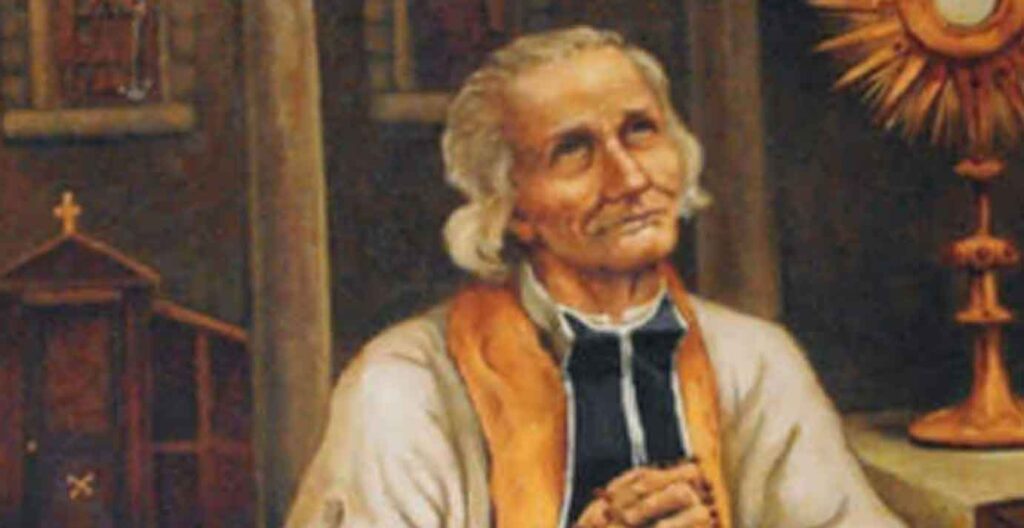Saint Anthony of Padua was born and raised by a wealthy family in Lisbon, Portugal. His wealthy and noble family arranged for him to be instructed at the local cathedral school. At the age of 15, he entered the Augustinian community of Canons Regular of the Order of the Holy Cross at the Abbey of Saint Vincent on the outskirts of Lisbon. In 1212, distracted by frequent visits from family and friends, he asked to be transferred to the motherhouse of the congregation, the Monastery of the Holy Cross in Coimbra, then the capital of Portugal.
After his ordination to the priesthood, Saint Anthony of Padua was named guestmaster at the age of 19, and placed in charge of hospitality for the abbey. While he was in Coimbra, some Franciscan friars arrived and settled at a small hermitage outside Coimbra dedicated to Anthony the Great. He was strongly attracted to the simple, evangelical lifestyle of the friars, whose order had been founded only 11 years prior. He obtained permission from church authorities to leave the Canons Regular to join the new Franciscan order. Upon his admission to the life of the friars, he joined the small hermitage in Olivais.
Occasionally, Saint Anthony took another post as a teacher at universities like University of Montpellier and University of Toulouse in southern France, but his preaching was considered to be his supreme gift. According to historian Sophronius Clasen, Anthony preached “the grandeur of Christianity”. His method included allegory and symbolical explanation of scripture.
In 1228, he served as envoy from the general chapter to Pope Gregory IX. At the papal court, his preaching was hailed as a “jewel case of the Bible” and he was commissioned to produce his collection of sermons, Sermons for Feast Days.
Saint Anthony became sick with ergotism in 1231 and went to the woodland retreat at Camposampiero with two other friars for a respite. There, he lived in a room built for him under the branches of a walnut tree. Anthony died on the way back to Padua on 13 June 1231 at the Poor Clare monastery at Arcella (now part of Padua), at the age of 35.
He is especially invoked and venerated all over the world as the patron saint for the recovery of lost items and is credited with many miracles involving lost people, lost things and even lost spiritual goods.


